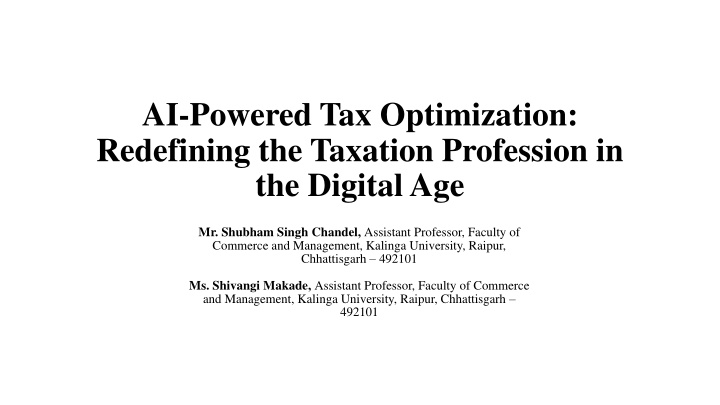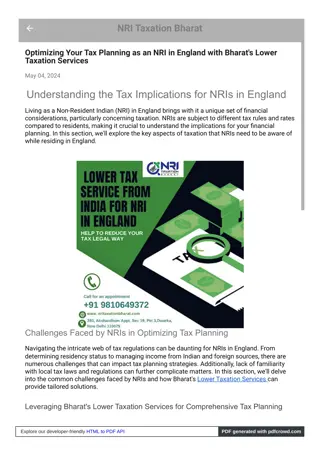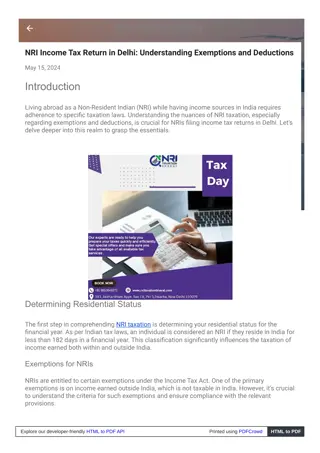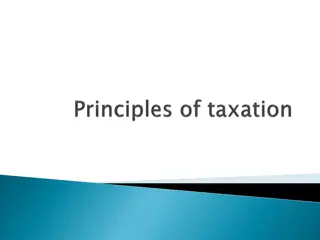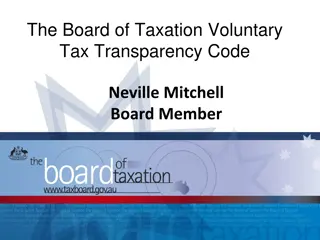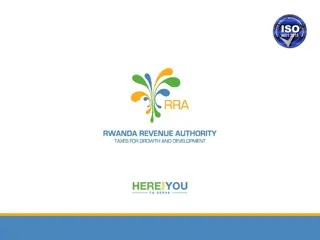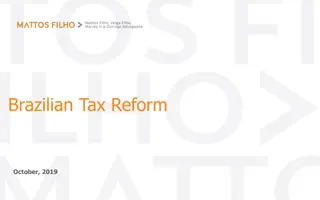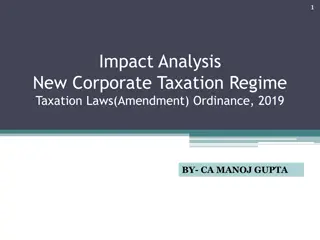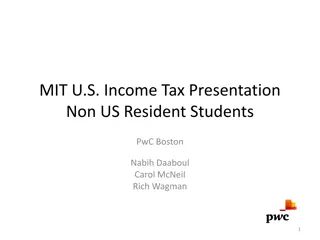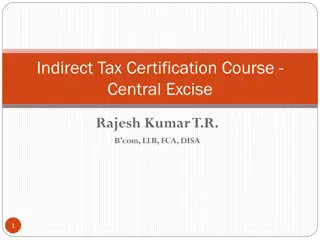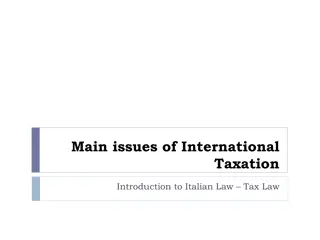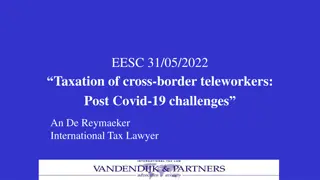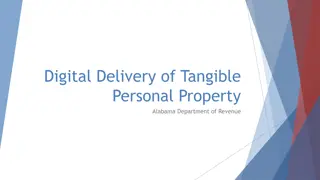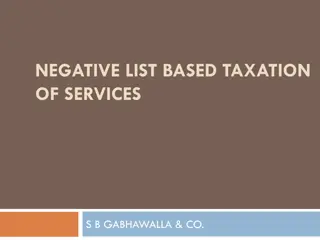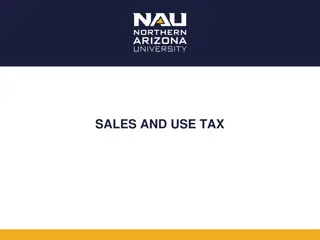AI-Powered Tax Optimization: Redefining Taxation in Digital Age
Reshaping the taxation profession with AI's impact, automating tasks, predictive analytics, and ethical challenges. Transitioning to advisory roles with interdisciplinary skills and innovation.
Download Presentation

Please find below an Image/Link to download the presentation.
The content on the website is provided AS IS for your information and personal use only. It may not be sold, licensed, or shared on other websites without obtaining consent from the author.If you encounter any issues during the download, it is possible that the publisher has removed the file from their server.
You are allowed to download the files provided on this website for personal or commercial use, subject to the condition that they are used lawfully. All files are the property of their respective owners.
The content on the website is provided AS IS for your information and personal use only. It may not be sold, licensed, or shared on other websites without obtaining consent from the author.
E N D
Presentation Transcript
AI-Powered Tax Optimization: Redefining the Taxation Profession in the Digital Age Mr. Shubham Singh Chandel, Assistant Professor, Faculty of Commerce and Management, Kalinga University, Raipur, Chhattisgarh 492101 Ms. Shivangi Makade, Assistant Professor, Faculty of Commerce and Management, Kalinga University, Raipur, Chhattisgarh 492101
AI's Impact on the Taxation Profession Navigating Skills, Ethics, and Innovation in a Digital World
Introduction AI is reshaping the taxation profession. Transition from manual to advisory-based structures. Focus on skills, ethical thresholds, and interdisciplinary collaboration.
The Transformation of Tax Professionals Automating repetitive tasks. Streamlining compliance processes. Introducing predictive technologies. Shift to strategic and advisory roles.
AI in Tax Optimisation Core Functions: - Predictive analytics for cash flow and tax liabilities. - Real-time risk management. Benefits: - Enhanced accuracy and efficiency. - Optimized resource utilization.
Automating Compliance Key Features: - AI-powered workflows for timely filings. - NLP for understanding legal texts. Outcome: - Minimized human errors and penalties.
Predictive Analytics in Taxation Applications: - Identifying audit exposures. - Formulating mitigation strategies. Impact: - Proactive risk management and strategic planning.
Skills Required for AI-Driven Taxation New Skillsets: - Interdisciplinary engagement. - AI and data analytics literacy. - Ethical decision-making.
Ethical Challenges in AI Concerns: - Transparency in AI decision-making. - Accountability in automated tax assessments. Solutions: - Establishing ethical frameworks and policies.
AIs Impact on Global Taxation Key Insights: - Managing complexities of global tax regulations. - Improving international compliance.
Labour Market Implications Advantages: - Increased efficiency and productivity. - Growth in advisory roles. Challenges: - Continuous reskilling of professionals.
Interdisciplinary Collaboration Collaboration Areas: - Technology, law, and finance experts. - Joint problem-solving for global tax issues.
Case Study: AI in Tax Practice Example: - Implementation of AI tools in a multinational firm. Results: - Improved compliance and reduced audit risks.
Continuous Reskilling for Tax Professionals Requirements: - Ongoing training in AI tools. - Staying updated on evolving tax laws.
Future Prospects Predictions: - Widespread adoption of AI in taxation. - Greater reliance on AI for strategic decisions.
Conclusion Summary: AI is transforming taxation by improving efficiency, accuracy, and strategic value. Challenges: Ethics and continuous skill development. Closing Note: Professionals must adapt to thrive in the AI-driven era.
